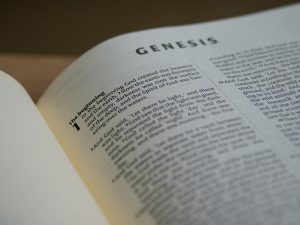We are delighted to share with you our library of resources. You can use the filter feature below to find topics most relevant to your curriculum.
Want to organise the resources you use most in one place? Register as a user to add content to your own Boards.
Christian Responses to Non-religious Views on WMD
Weapons of mass destruction
Non-religious Attitudes to Weapons of Mass Destruction (WMD)
People who don't follow a religion, such as humanists and atheists, have their own viewpoint on WMD. Their views are similar to Christians; they don't accept WMD. However, their reasons for these views are different because they don't believe in God.
- Humanists believe that life is special, but not because they believe in the sanctity of life. They reject the sanctity of life because it is based on religious teaching. Instead, they place value on life because they believe that humans have a natural concern and compassion for other human beings, living creatures, and the natural world.
- Atheists are against the use of WMD because of the widespread destruction that they cause.
- Humanists and atheists do not believe that God created the world, however that doesn't stop them from appreciating its beauty or complexity. They would also disagree with WMD because of the damage they cause to the environment.
Utilitarianism states that the right action is the one that brings happiness to the greatest number of people in any given situation. As WMD causes enormous loss of life, they bring unhappiness to many, therefore, the use of WMD is unacceptable.
However, others might apply the theory to argue that, whilst WMD cause destruction on a massive scale, they can also be used to end wars, restore peace and save the lives of millions of people. An example of this is when World War II was brought to a close after atomic bombs were dropped on Hiroshima and Nagasaki. The atomic bombs did kill an estimated 200,000 people, however, it also ended the war, saving the lives of millions who would have died if it had continued.
Furthermore, WMD act as a deterrent, preventing wars from starting in the first place. Therefore, the acquisition and stockpiling of WMD might be supported by applying utilitarianism.
Situation ethics argues that the right action to take is the one that is the kindest and most loving thing to do in any situation. People may apply this theory to WMD and argue that killing people on a massive scale is not a very kind or loving thing to do, therefore, WMD are unacceptable.
However, much like the utilitarianism argument, others might argue that if acquiring WMD prevents people from declaring war on each other for fear of the consequences, then it might be a kind and loving thing to have them. Additionally, the use of WMD to stop a war - as in the example of WWII - might be the kindest and most loving thing to do.
Christian Responses
 Christians would support these non-religious views on WMD, however, their reasons are different. As they believe in God, their reasons are grounded in teachings from the Bible.
Christians would support these non-religious views on WMD, however, their reasons are different. As they believe in God, their reasons are grounded in teachings from the Bible.
- They believe that life is sacred, and has value because God created it; therefore, nobody should take someone's life.
- God created humans in his image, therefore, we should respect his work by cherishing it, not destroying it.
- Christians place great emphasis on the importance of peace. They follow the teachings and example of Jesus, who they view as a peacemaker, therefore, they don't accept the use of WMD.

